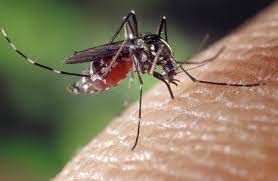Ghana’s Success in Reducing Malaria: A Step Towards a Healthier Future for Children

In recent years, Ghana has made significant strides in the fight against malaria, particularly among children under five. According to the National Malaria Elimination Programme (NMEP), the country has seen a 45% reduction in malaria cases in this age group, thanks to the integration of malaria vaccines into the routine immunisation programme.
Dr. Kezia Malm, Programme Manager at the NMEP, attributes this remarkable decline to the lifesaving impact of the vaccine intervention. The prevalence of malaria among children under five has dropped from 26.7% in 2014 to 8.6% in 2022, a positive trend that is saving the lives of many vulnerable children.
Malaria remains a leading cause of death in Ghana, disproportionately affecting young children. However, with the implementation of effective prevention strategies and the commitment of healthcare professionals, progress is being made towards reducing the burden of this deadly disease.
Looking ahead, Dr. Malm expressed optimism about Ghana’s ability to sustain its immunisation efforts as the country transitions away from external support. The Ministry of Health, in collaboration with the Ministry of Finance, is working diligently to ensure self-sufficiency by 2030, a goal that will further strengthen Ghana’s healthcare system and improve the overall health and well-being of its citizens.
As Ghana continues to make strides in reducing malaria cases among children under five, it serves as a beacon of hope for other countries facing similar health challenges. With dedication, innovation, and collaboration, significant progress can be made in combatting preventable diseases and creating a healthier future for all. Ghana’s success story is a testament to the power of effective healthcare interventions and the positive impact they can have on the lives of vulnerable
Ghanaflare.com




